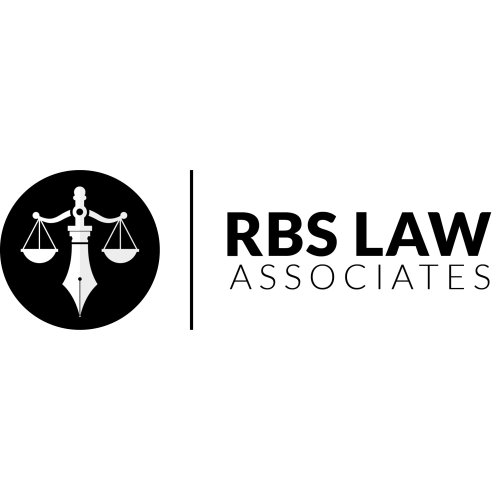Best Funds & Asset Management Lawyers in Pakistan
Share your needs with us, get contacted by law firms.
Free. Takes 2 min.
Or refine your search by selecting a city:
List of the best lawyers in Pakistan
About Funds & Asset Management Law in Pakistan
Funds and asset management is a rapidly growing field within Pakistan’s financial and legal sectors. It involves the handling and investment of capital on behalf of individuals, institutions, and other entities by professional asset managers. The legal framework governing funds and asset management is designed to protect investors, promote transparency, and ensure the integrity of Pakistan’s capital markets. This area of law covers mutual funds, pension funds, real estate investment trusts (REITs), private equity funds, and more. The regulatory environment is managed primarily by the Securities and Exchange Commission of Pakistan (SECP), which sets out the rules and regulations for fund management companies, custodians, trustees, and related parties.
Why You May Need a Lawyer
Engaging a lawyer who specializes in funds and asset management can be essential in several situations. Some of the most common reasons include:
- Setting up or registering a mutual fund, pension fund, or other investment scheme
- Ensuring compliance with SECP rules and regulations
- Drafting and reviewing investment management agreements and other contractual documents
- Advising on the legal structure of funds and strategies for minimizing legal risks
- Dispute resolution relating to fund performance, mismanagement, or regulatory actions
- Assistance with licensing and regulatory filings
- Handling issues related to investor rights and protection
A qualified lawyer can provide clarity and help safeguard your interests in the evolving landscape of asset management in Pakistan.
Local Laws Overview
Funds and asset management in Pakistan is chiefly regulated by the SECP under various statutes and rules. Key legal instruments and regulations include:
- Securities and Exchange Commission of Pakistan Act, 1997
- Non-Banking Finance Companies (Establishment and Regulation) Rules, 2003
- Non-Banking Finance Companies and Notified Entities Regulations, 2008
- Companies Act, 2017
- Trust Act, 1882 (in relation to the structure and functioning of funds)
- Central Depository Companies (CDC) regulations for the custody and clearing of securities
The SECP exercises strong oversight to ensure investor protection, corporate governance, and transparency. Licensing is mandatory for fund managers, trustees, and custodians. There are strict requirements for disclosure, periodic reporting, and conflict-of-interest management. The legal landscape also obligates market participants to adhere to anti-money laundering (AML) and know-your-customer (KYC) protocols.
Frequently Asked Questions
What is the role of the SECP in funds and asset management?
The SECP regulates and supervises asset management companies and various types of funds, ensuring compliance with laws and protecting investor interests through licensing, periodic audits, and enforcement actions.
Can foreign investors participate in Pakistani funds?
Yes, foreign investors can participate subject to certain regulatory requirements and restrictions. Permissions may be required and there are reporting obligations to both the SECP and State Bank of Pakistan.
What types of funds are commonly available in Pakistan?
Common types include mutual funds, pension funds, voluntary pension schemes, REITs, private equity funds, and Islamic funds complying with Shariah principles.
How are mutual funds regulated?
Mutual funds must be registered with the SECP and managed by licensed asset management companies. They follow strict investment guidelines, disclosure, and reporting standards set by the SECP.
What are the main risks involved in investing in funds?
Risks include market risk, liquidity risk, mismanagement risk, and legal or regulatory risk. Investors should carefully review fund documents and consult professionals before investing.
Is there investor protection or insurance for fund investments?
Funds are required to appoint independent custodians and trustees for protection of assets but there is typically no government insurance. The SECP enforces rules to minimize the risk of fraud and mismanagement.
What is a trustee's function in asset management?
A trustee acts as a safeguard for investors, overseeing the management of fund assets, ensuring compliance, and representing the interests of unitholders.
How does Shariah-compliant asset management work?
Shariah-compliant funds invest according to Islamic principles, avoiding prohibited activities such as interest (riba), gambling, and investments in restricted industries. A Shariah advisor or board typically guides compliance.
What recourse is available in case of disputes or fraud by a fund manager?
Investors can approach the SECP, utilize internal dispute resolution mechanisms, or seek recourse through civil courts under relevant financial and corporate laws.
What documents should I review before investing in a fund?
Review the offering document or prospectus, trust deed, fund management agreement, audited financial statements, and SECP registration or licensing information.
Additional Resources
If you need further guidance or official information, the following resources and organizations can be helpful:
- Securities and Exchange Commission of Pakistan (SECP)
- Mutual Funds Association of Pakistan (MUFAP)
- State Bank of Pakistan (for foreign investor guidelines and remittance procedures)
- Pakistan Stock Exchange (PSX) - for listings and fund performance data
- Central Depository Company of Pakistan Limited (CDC)
- Relevant law firms and legal associations specializing in financial law
Next Steps
If you require legal assistance related to funds and asset management in Pakistan, consider the following actions:
- Identify your specific legal needs, such as fund formation, compliance, or dispute resolution
- Gather all relevant documents and details regarding your matter
- Research and contact qualified lawyers with experience in funds and asset management law
- Consult the SECP and industry associations for additional guidance and to verify legal credentials
- Schedule a consultation to discuss your situation, ask questions, and understand the scope of legal advice you may require
Taking timely legal advice can help you navigate regulatory complexities, protect your investments, and ensure compliance with Pakistan’s evolving funds and asset management laws.
Lawzana helps you find the best lawyers and law firms in Pakistan through a curated and pre-screened list of qualified legal professionals. Our platform offers rankings and detailed profiles of attorneys and law firms, allowing you to compare based on practice areas, including Funds & Asset Management, experience, and client feedback.
Each profile includes a description of the firm's areas of practice, client reviews, team members and partners, year of establishment, spoken languages, office locations, contact information, social media presence, and any published articles or resources. Most firms on our platform speak English and are experienced in both local and international legal matters.
Get a quote from top-rated law firms in Pakistan — quickly, securely, and without unnecessary hassle.
Disclaimer:
The information provided on this page is for general informational purposes only and does not constitute legal advice. While we strive to ensure the accuracy and relevance of the content, legal information may change over time, and interpretations of the law can vary. You should always consult with a qualified legal professional for advice specific to your situation.
We disclaim all liability for actions taken or not taken based on the content of this page. If you believe any information is incorrect or outdated, please contact us, and we will review and update it where appropriate.
Browse funds & asset management law firms by city in Pakistan
Refine your search by selecting a city.

















